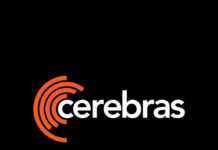Gemini AI: A Safer and More Capable Experience for Teens
In recent developments, Gemini, a prominent platform in the realm of generative AI, has been recognized for its efforts to create a safer and more educational experience for teenagers. According to a recent analysis by Common Sense Media, Gemini stands out as the only major platform that has tailored its services specifically for a teenage audience. This includes the implementation of additional safeguards against child sexual abuse material (CSAM), alongside robust content policies and in-product experiences designed to help teens better understand the limitations and capabilities of generative AI technologies.
Generative AI refers to artificial intelligence systems that can generate text, images, or other media in response to user inputs. The technology has immense potential but also poses certain risks, especially for younger users. By taking proactive steps to address these risks, Gemini is setting a precedent in the industry for responsible AI innovation.
Gemini Integration in Google Workspace
Gemini for Google Workspace represents another leap forward in AI accessibility. This integration provides users with the ability to interact with Gemini Advanced, one of the most sophisticated AI models available. The integration spans across widely-used applications such as Google Docs, Gmail, and Classroom. This allows users to effortlessly summarize, analyze, and generate content, enhancing productivity and creativity in educational settings.
Through this integration, Gemini is not just a tool but a bridge that connects users to advanced AI capabilities within platforms they already use and trust. The convenience of having AI-assisted functionalities in everyday applications means that both educators and students can derive significant benefits, making their tasks more efficient and manageable.
Introducing Chromebook Plus: Enhanced Performance and AI Capabilities
In a bid to further empower users, Google has launched Chromebook Plus, a new line of laptops that promise double the performance in terms of display quality, memory, and storage. These laptops are equipped with options for touchscreen convertibles and styluses, making them versatile tools for both creative and educational purposes. What’s particularly noteworthy is the inclusion of Gemini-powered AI capabilities, which are built into these devices for users aged 18 and over.
These AI capabilities are designed to maximize productivity and boost creativity, providing users with powerful tools to explore and express their ideas. The seamless integration of AI features in hardware illustrates a forward-thinking approach to technology design, where hardware and software work in harmony to deliver enhanced user experiences.
Gemini LTI: Bringing AI to Learning Management Systems
In the coming weeks, Gemini is set to expand its influence in the educational sector with the introduction of Gemini LTI (Learning Tools Interoperability). This initiative aims to integrate the power of Gemini into Learning Management Systems (LMS), beginning with platforms like Canvas by Instructure and PowerSchool Schoology Learning. This integration will offer AI-driven tools for educators and students directly within their LMS environment.
Learning Management Systems are platforms that facilitate the administration, documentation, and delivery of educational courses or training programs. By embedding AI capabilities within these systems, Gemini is providing a more interactive and personalized learning experience. Educators can leverage these tools to craft more engaging lessons, while students can benefit from personalized assistance and insights.
Understanding the Impact of AI in Education
The advancements brought by Gemini and its integration into various platforms highlight a broader trend in the education sector: the increasing reliance on AI to enhance learning experiences. AI has the potential to transform education by providing personalized learning paths, automating administrative tasks, and offering insights that were previously difficult to obtain.
However, as with any technology, there are challenges and concerns. The need for robust safeguards, as demonstrated by Gemini’s approach to CSAM, underscores the importance of protecting young users from potential harm. Additionally, understanding the limitations of AI is crucial to prevent over-reliance on technology and to ensure that human oversight remains a central component of educational processes.
The Future of AI in Education
As AI continues to evolve, its role in education is likely to expand. The ability to tailor educational content to individual learning styles and needs is a game-changer, potentially leading to more effective and inclusive educational environments. Moreover, the automation of routine tasks can free up educators to focus on what they do best: teaching and mentoring students.
The developments from Gemini and Google are indicative of a future where AI is not just an adjunct to education but a core component of the learning ecosystem. As these technologies become more integrated into everyday life, it is essential for stakeholders—educators, parents, and policymakers—to stay informed and engaged with these changes, ensuring that AI is used ethically and effectively to benefit all learners.
Conclusion
In conclusion, Gemini’s initiatives in enhancing AI experiences for teens and integrating its capabilities into educational tools represent significant strides in the responsible deployment of AI in education. By prioritizing safety, accessibility, and productivity, Gemini is paving the way for a future where AI is an ally in the learning process, helping to unlock the potential of students and educators alike. For those interested in learning more about these developments, the original source of this information can be found on Common Sense Media’s website.
For more Information, Refer to this article.

































